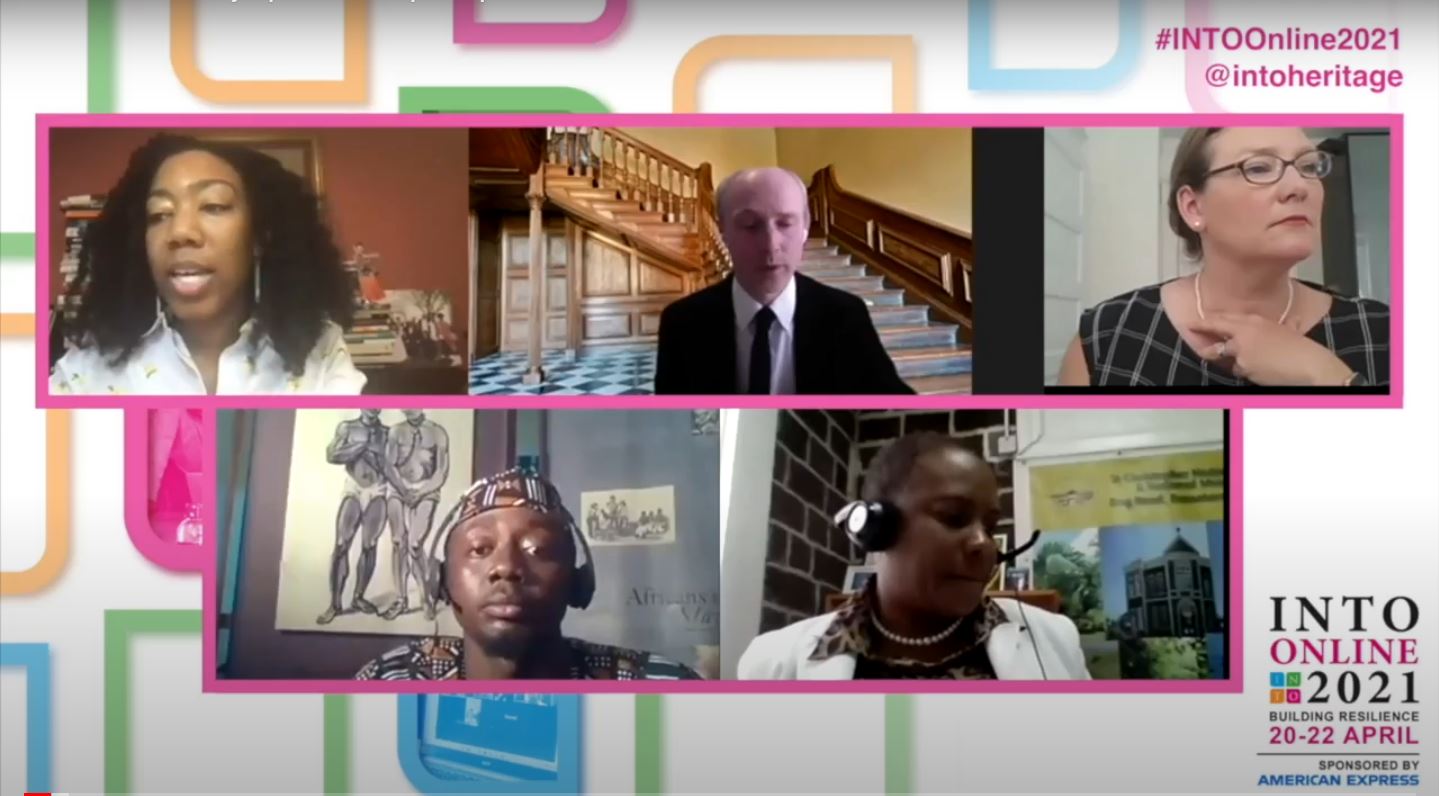World Day for Cultural Diversity
A blog by Catherine Leonard, Secretary-General
As we mark World Day for Cultural Diversity on 21 May, we recognise that now, more than ever, we need to come together as a global community. The challenges we face, from climate to coronavirus, require a collaborative, international response. Now is not the time to talk about winners and losers. The only way to move forward is by pooling our resources, working together to find solutions, and sharing the load.
And it’s the same for our family of National Trusts.
INTO Online clearly demonstrated the value in sharing ideas, strategies, worries and concerns. Whether rethinking tourism, connecting to nature, tackling climate change or telling whole stories. Every aspect of our work can benefit from interaction with international colleagues. Especially those who share our values and approach.
It was also an opportunity to strengthen the ties between the National Trusts of the world. Particularly at a time when global collaboration and multinationalism feel under threat; but are actually needed more than ever. Bridging the gap between cultures feels so important. As does celebrating and promoting diversity.
At a time when global collaboration and multinationalism feel under threat (but are actually needed more than ever), bridging the gap between cultures feels so important. As does celebrating and promoting diversity.
What is cultural diversity?
Google defines cultural diversity as ‘the existence of a variety of cultural or ethnic groups within a society’.
Article 1 of the UNESCO Universal Declaration on Cultural Diversity refers to it as ‘a source of exchange, innovation and creativity […] as necessary for humankind as biodiversity is for nature’.
But what does it mean to us, the National Trust movement, in practice? At our sites, we want all people to feel welcome. Wherever they come from, no matter the colour of their skin, faith, language, age, sexual orientation, culture or heritage. But what about more complicated questions? How to balance different values recognised by diverse groups? How to tell the whole story of our sites? What skills do we need to develop to better understand the heritage issues of different communities? And what can we do to build trust, repurpose our privilege and grow self-reflection?
We need diversity in what we do but also in how we do it. In its report on Future Work Skills, the Institute for the Future identified ‘cross-cultural competency’ or the ‘ability to operate in different cultural settings’ as one of ten key skills for the future workforce.
Moreover, it is now accepted that heritage matters are inextricably linked to issues of race, diversity and social justice.
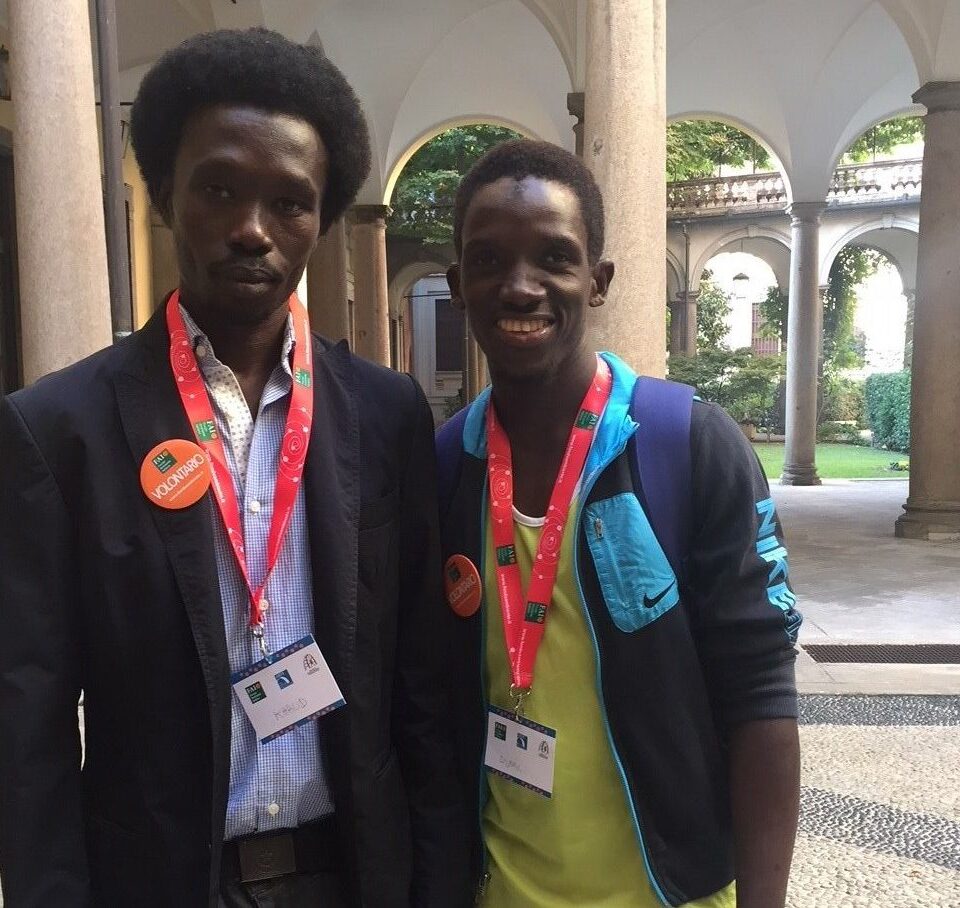
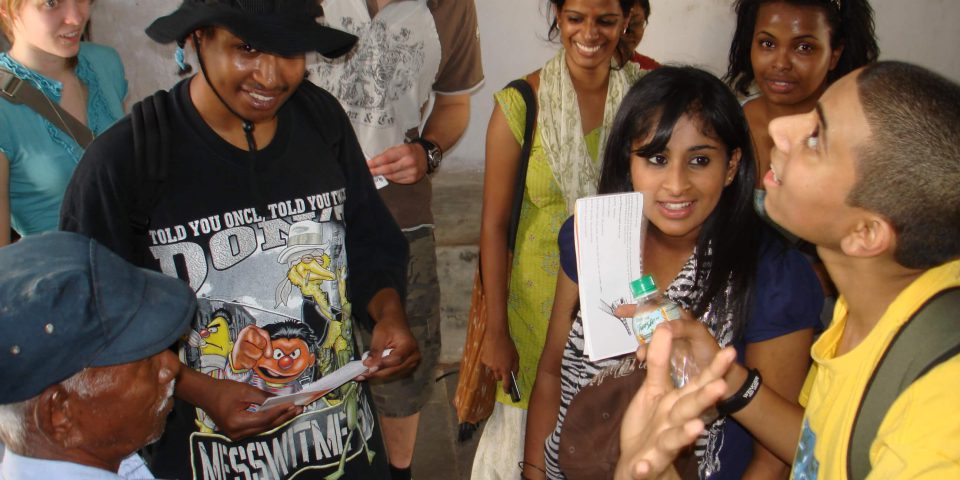
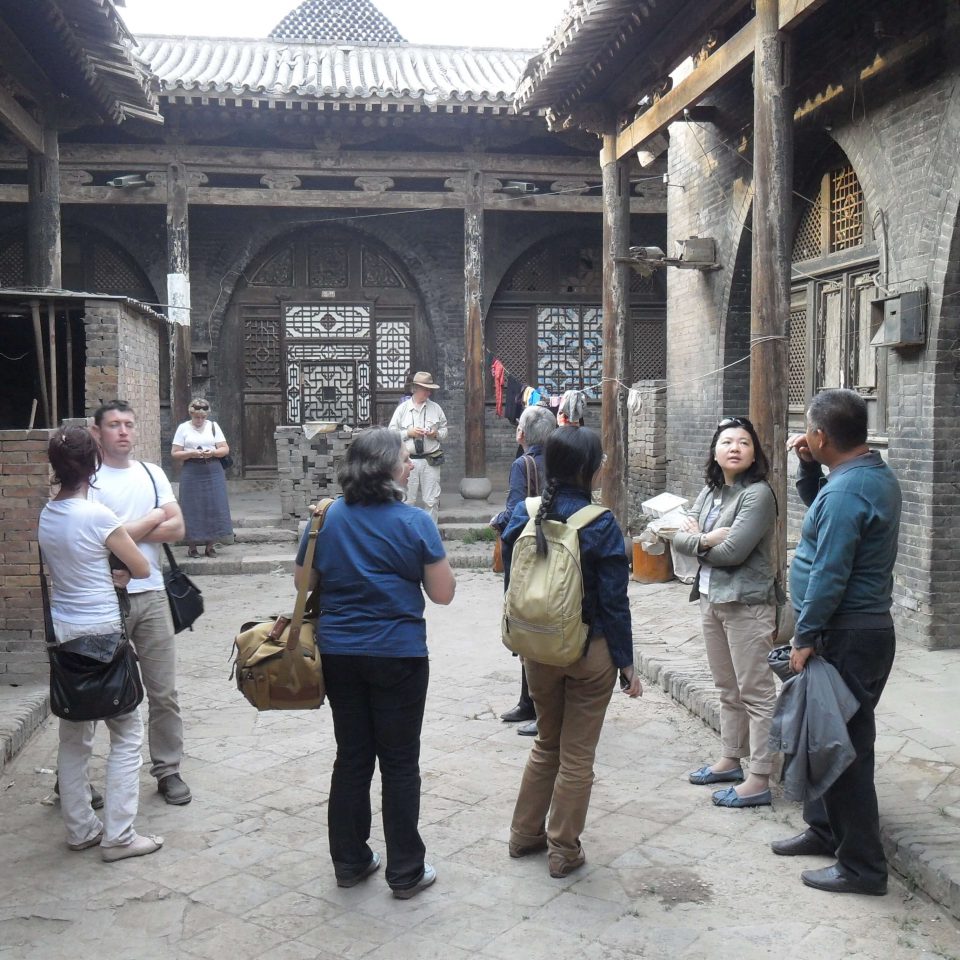
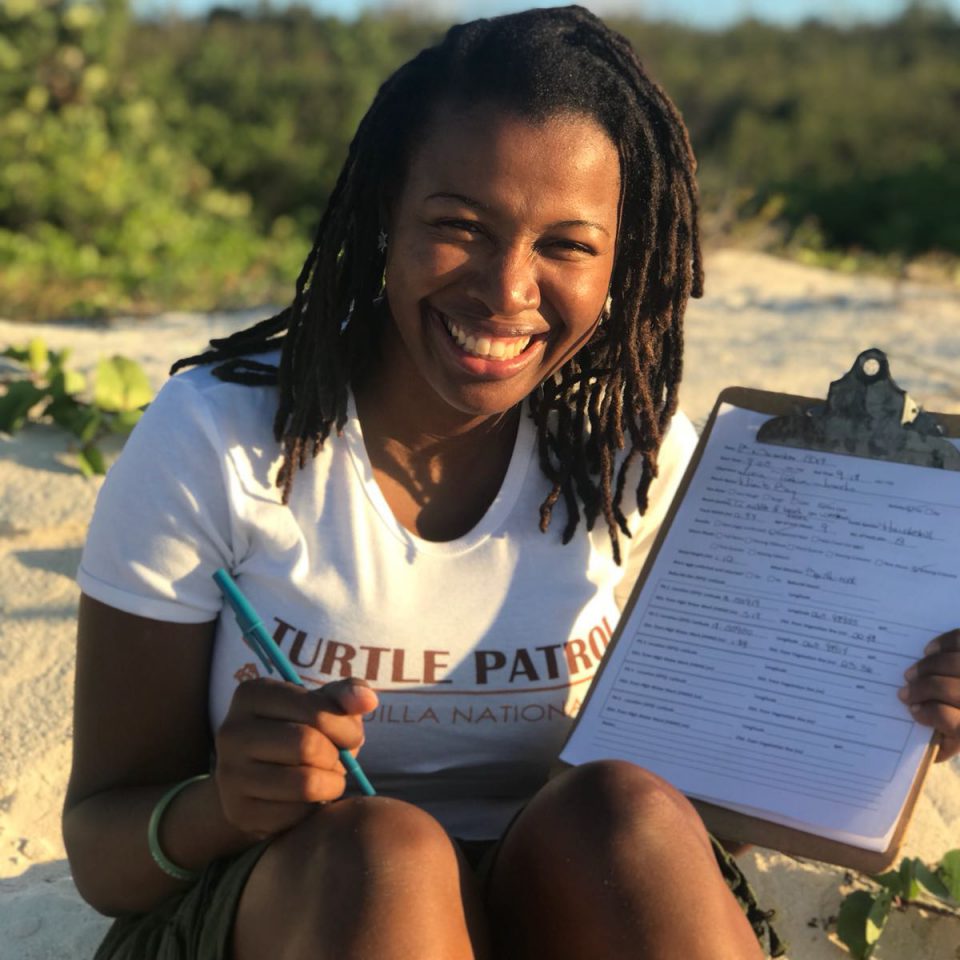
Diversity and the National Trust movement
INTO’s role is one of creating group cohesion. About building trust, comfort and space for the benefit of our global National Trust community.
We are a wonderfully diverse organisation, as you can see in our membership list. INTO brings together heritage conservation organisations from over 60 countries and territories: big and small; young and old. All are different and our job is to pull together the threads that connect them – like a rich tapestry, or this month perhaps a maypole?
By creating space for organisations to learn from each other, cooperate and innovate, we enable them to grow and develop.
2020 as an opportunity to reset
We wrote about some of the wonderful work INTO members are doing to increase diversity, inclusion and equality in our Arms Wide Open Report. And we’ve made huge progress as a movement. But some vestiges of misunderstanding or mistrust can linger on.
In his address at INTO Online, Professor David Olusoga spoke about how National Trusts are looking into their own history. And how 2020 provided an opportunity to recalibrate. He cited the amount of reading and learning that had taken place during lockdown.
There’s been an explosion of interest among people, many of whom have thought deeply about history, about heritage, about racial justice, about anti-racism, about all of these issues more deeply than they ever have in their entire lives. I think now is the time to not only embrace that, but to use it as a moment to reinvent ourselves, to engage more deeply, to present stories more deeply, to put the triangulations of government to the side lines, to reach out to new groups. Because Covid is an event that none of us has been through, and the period that we’re going to live through after is going to be similarly unique.
He highlighted the need for simple honesty. Making sure that we tell the uncomfortable stories as well as the celebratory ones. Particularly as our populations become more and more diverse. We can’t just say to large percentages of our community, indeed our future audiences, that ‘your history, your family history, the history of your islands and territories is something that makes us feel uncomfortable. Therefore, we’re going to pretend it didn’t happen’.
Professor Olusoga also spoke very hopefully about young people today who aren’t afraid to put their hand into the fire of history. He said that the people who took to the streets last summer in support of Black Lives Matter don’t need history to be comforting the way their parents and grandparents did: ‘They don’t require history to make them feel good about themselves. They see history as a place where you go to challenge yourself, where you go to root out hidden biographies and hidden facts and better understand the reality of your nation.’
As organisations in the business of telling stories, providing access and creating space for reflection, this is welcome news to National Trusts around the world.
Building Bridges
Our next conference will develop some of the themes of INTO Online. INTO Antwerp 2022 is called ‘Building Bridges: Learning from the past today to create a better future’.
Bridges are a symbol of close co-operation and close communication between generations, communities, disciplines, countries and cultures.
Over the coming months, we will build on the outcomes of INTO Online: What we learned about cultural diversity and the importance of telling the whole story; community engagement and our Putting the Local into Global Heritage Report; and developing thinking and practice in the field of climate change. And we will build on the sense of solidarity and comradeship that we all experienced over three days in April. The importance of standing shoulder to shoulder with other members of the global National Trust family. And feeling that the things that concern us are basically the same, wherever we are in the world.
Whether that’s hearing about the work of the Cross-Cultural Foundation of Uganda to preserve cultural heritage at risk from climate change. Or learning how the St Christopher National Trust and Sierra Leone Monuments and Relics Commission are telling the stories of slavery at their places. Hearing how trusts in the UK and America are reconnecting people with nature. Or listening to senior leaders from Italy to New Zealand talk of the incredible amounts of love there is for what we do.
It feels good to throw our arms around the world again on World Day of Cultural Diversity – to table our own experiences and listen to the committed voices of others. We all have so much to learn and share.
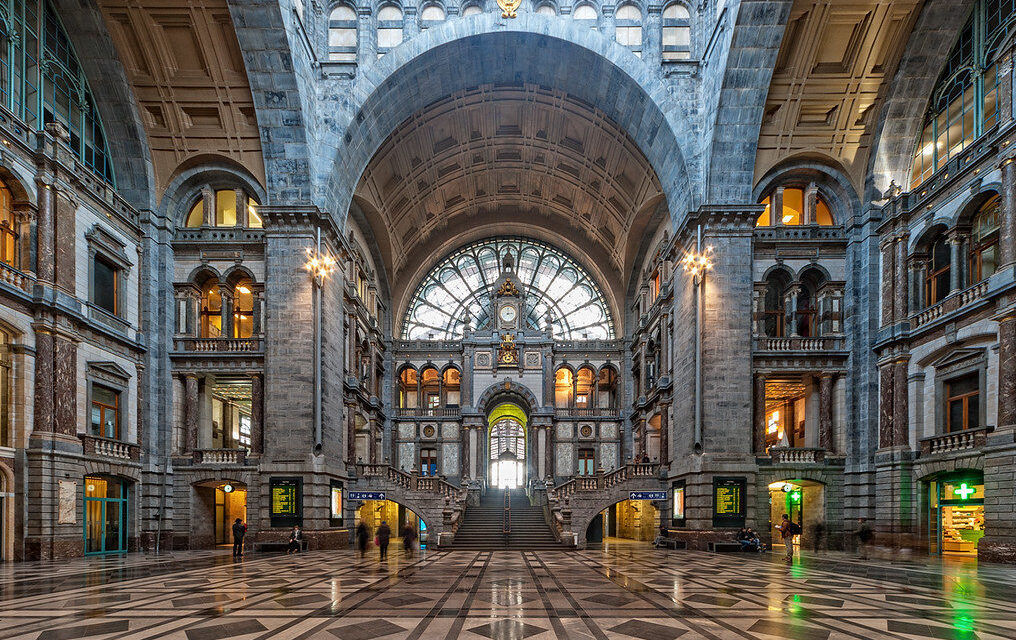
Interested in the next INTO Conference?
INTO Antwerp 2022 will focus on 'Building Bridges: Working together to connect the past, present and future' Register your interest now to stay up to date with the next INTO Conference.
Find out more
